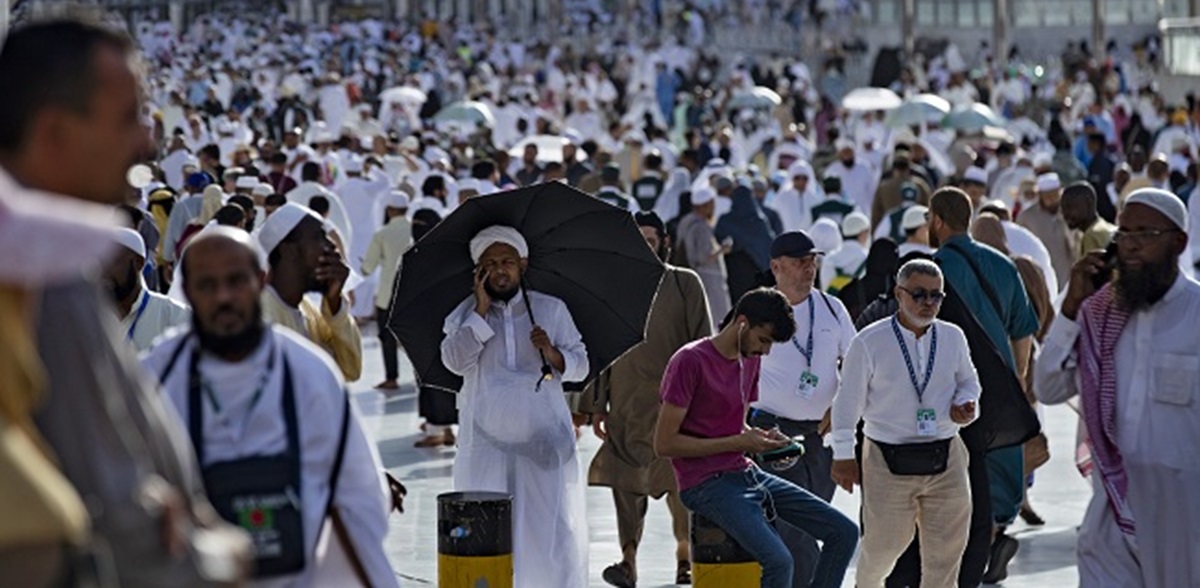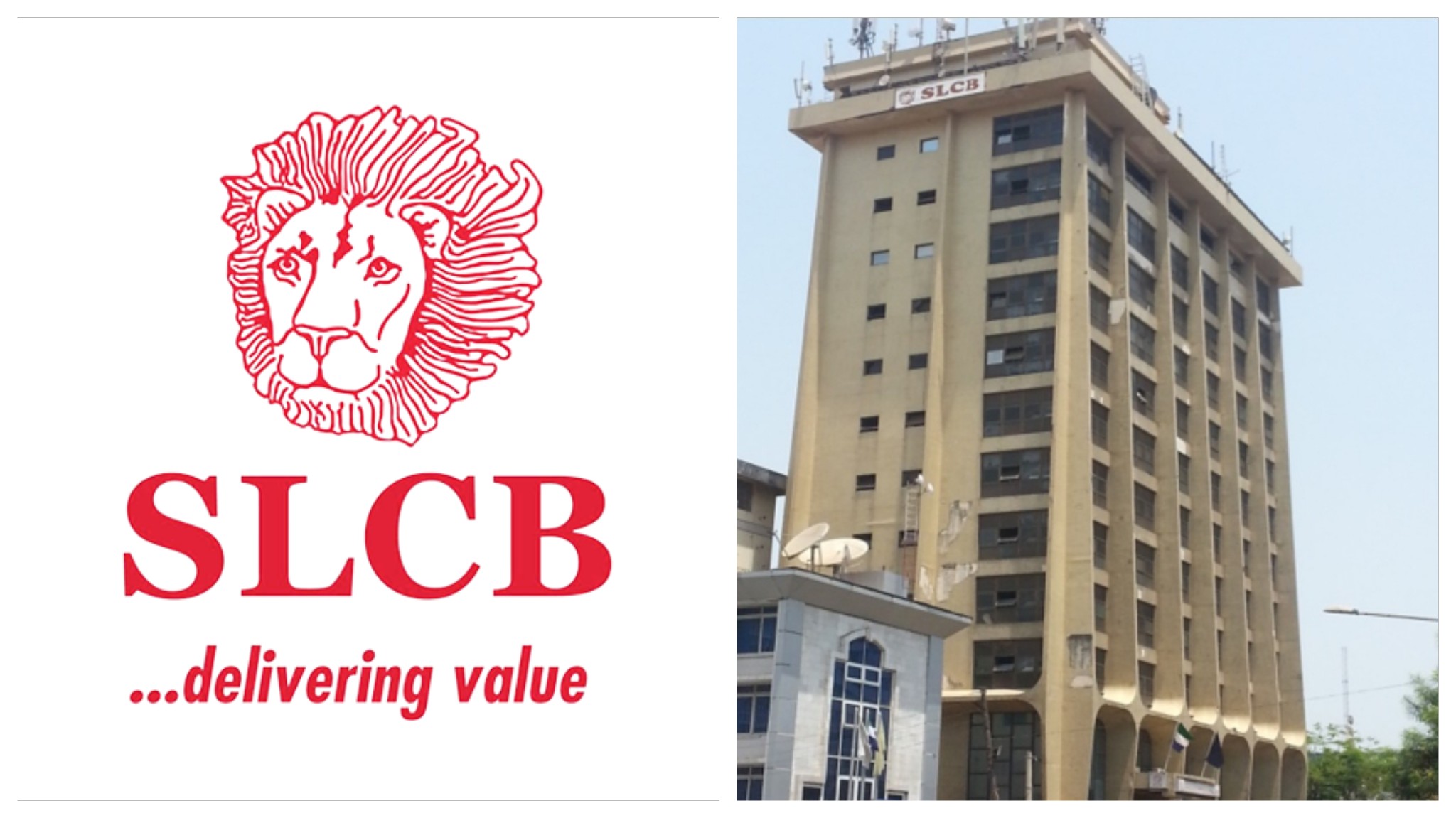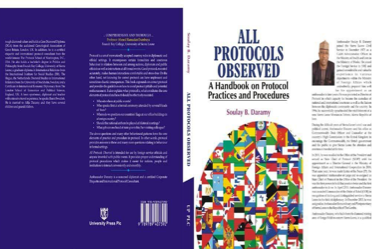
PONDER MY THOUGHTS
By Andrew Keili
“ALL PROTOCOLS OBSERVED”: THE RUMINATIONS OF AN “ETERNAL SCOP”
“When an old man dies a library burn to the ground”-Old African proverb
“If you don’t see the book you want on the shelves, write it.” – Beverly Cleary
The renowned Professor J.A.D. Allie used these quotes in his review of the book- “All protocols observed- A handbook on protocol practices and procedures”, authored by the renowned SCOP, Soulay Daramy during its launching at the Lagoonda complex, Aberdeen on November 24, 2020.

It is true that notable Sierra Leoneans in public life don’t like putting pen to paper with their thoughts to espouse their many years of experience. When Ambassador Soulay Daramy told me some time ago that his book on protocol was about to be published, I was excited that this “Eternal SCOP” was going to let us have an insight into how he made things work out at state functions like clockwork. Who wouldn’t remember that Soulay was behind all that orderliness that we could see in the way things were handled with Presidential protocol for a long time. Well, he has launched the book and it is an admirable piece of work.
Soulay Daramy joined the Sierra Leone Civil Service directly from Fourah Bay College in the mid-1970s as an Administrative Officer Cadet and apart from a brief stint at the Health Ministry spent the rest of his career in the Foreign Service and Ministry. He says in the book – “At an early stage in the Foreign Ministry, I noticed with admiration the importance of protocol in conducting interactions between people (particularly diplomats), nations and international organizations…… they required rigorous planning and attention to specific details”. He was later promoted to the rank of State Chief of Protocol (SCOP), the custodian of diplomatic courtesies and all protocol matters in the country. He was privileged to oversee protocol procedures at the highest level, both locally and internationally and has also been an Ambassador.
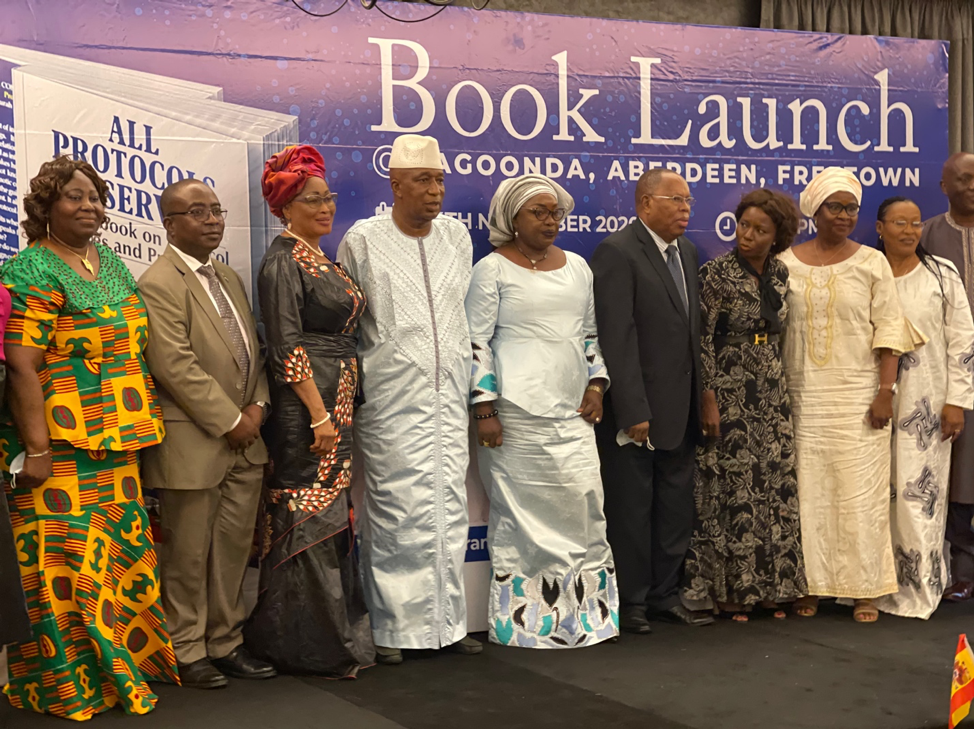
The one hundred and ninety-page book makes an interesting read. It explains what protocol is, what elements constitute protocol and how these rules are to be adhered to properly. It also outlines the qualities of the people who must carry out protocol functions. We learn that protocol is “a set of rules prescribing good manners in official life and in ceremonies involving governments and nations and their representatives. It is the recognized system of international courtesy.” Someone else defined protocol as- ‘’the best way of doing things or conducting business”.
The book wades into defining the various types of protocol -State protocol involving a head of state and government as well as other senior officials of a state, Diplomatic Protocol pertaining to the diplomatic and consular corps and diplomatic relations between states, institutional Protocol practised to conform to the genre of character of a specific organization or outfit and Public Protocol in public events such as international sporting activities.
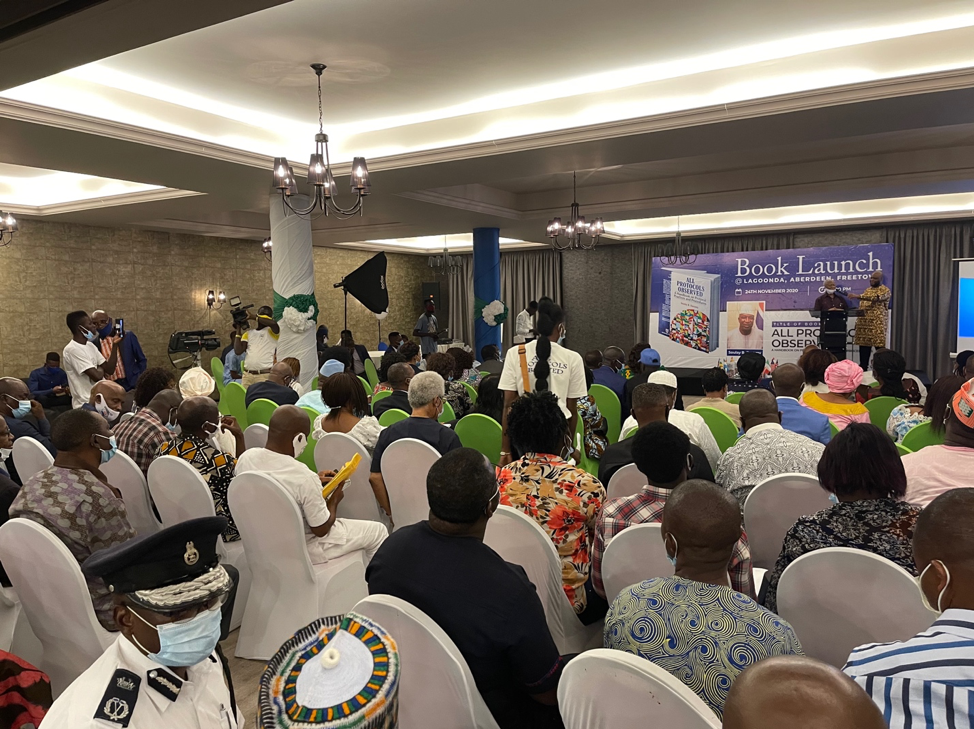
I will share with you some interesting facts in the book-if you want more, buy your own copy!
• In Gambia all the honorifics and names of the then president Yahya Jammeh were called in full at all official and formal functions as follows:
His Excellency Sheikh Professor Alhaji Dr Yahya (A)bdul-Aziz (J)amus (J)unkung (J)ammeh Babili Mansa. Woe betide anyone who dared to deviate from this at official functions.
• Nepal is the only country in the world whose national flag is not rectangular or square.
• Out of the 54 countries in Africa, there are only seven countries whose national flags do not have red or black colors.
• If seats are allocated to guests, a seat number (‘You are seated at’ (YASA) card) must be enclosed, in addition to cards for parking slots.
• The seat of honor is either the seat to the right or across the table opposite the host.
There are lots of dos and don’ts highlighted in the book with practical examples with what went right or wrong at certain functions. It is certainly a must read for anyone involved with protocol or work in the Foreign Ministry. No surprise then that the Chief Launcher, Minister of Foreign Affairs, Nabeela Tunis has urged that all her staff get a copy.

Minister Tunis incidentally particularly likes the section on challenging trends with protocol. Emerging new social orders, new and rapid technological advances and the universal acceptance and respect for diverse world cultures have all impacted the styles and procedures of protocol. The advent of social media and new means of communications demand that certain changes are instituted in the interest of expediency. These issues are aptly handled in the book.
But first, it would help if you try to answer the following questions
(i) Should the First Lady be called “Her Excellency”?
(ii) How is the spouse of a female president addressed?
(iii) What would be the seating arrangement for same-sex couples at an official state function?
(iv) How do we address two wives of a sitting president?
(v) Should ‘selfies’ with the Queen or a president be allowed?
(vi) How would you call the wife of the Vice President?
(vii) What does smart-casual mean in different countries?
(viii) In 1996, Sierra Leone appointed a female as ambassador to the Islamic Republic of Iran and she stayed long enough to become the Dean of the Diplomatic Corps in that country. Who was she?
Again, don’t ask me for the answers. I repeat it again, once more for the second time (As Teacher Musa used to say)-BUY THE BOOK! Lonta!
There are a whole host of other issues handled by Soulay including the role of Protocol Officers in Corporate organisations-just in case you thought protocol was only for diplomats. Issues of lateness at events and presentation of gifts are also handled. He tells the story of a British minister who presented a clock as a gift to a mayor of a Chinese city. Giving clocks as a gift in Chinese tradition is not appropriate, but the British minister had not done her homework properly. The word for clock in Chinese sounds like end and many associate it with death!
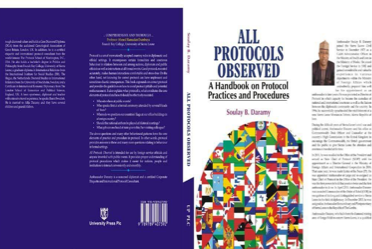
Soulay laments the improper use of the phrase ‘all protocols observed’ and says it is s a breach of protocol courtesies even though people claim they are observing protocol -“The use of the above phrase is essentially an excuse for not observing the courtesy rule of procedure by failing to recognize those who should and must be recognized at an event”, he says. I agree with him and repeat something I wrote on this in an article in this column a few years ago- “All protocols observed” is usually at the end of a salutation when you name some important people and think there may be more in the hall whom you are likely to leave out. One writer says the following about ‘All protocols observed’— “It is a lie… You have NOT observed any protocols. It is just a claim that the necessary rules of decorum have been observed but we all know protocol was overlooked altogether. Consider this, if you had been asked to pass a vote of thanks, would you thank one or two people and then state, ‘All thanks given?’ Actual meaning should be I have called the most important people, but if you also feel you are important enough, I don’t have time to salute you. So, don’t get angry.”

Soulay mentions the long title of President Yahya Jammeh. However, no one quite beats President Idi Amin whose official title was:
“His Excellency, President for Life, Field Marshal Al Hadji Doctor Idi Amin Dada, Victorious Cross, Distinguished Service Order and Military Cross recipient, Lord of All the Beasts of the Earth and Fishes of the Seas and Conqueror of the British Empire in Africa in General and Uganda in Particular, Uncrowded King of Scotland.”
Well, it looks like Soulay’s protocol book would tempt me to talk about a protocol my Dad thought me a long time ago which I call- “The “WERE” protocol”- “WERE”, as in leftover food-you know what I mean! We had a househelp in Kenema- Jibao who was a glutton. He would eat his food and wait to devour for my Dad’s “were”. One day my Dad was late home and Jibao became impatient. He sliced off part of my Dad’s food, rearranged the top and closed the dish. When my Dad noticed the tampering after returning, he enquired and Jibao admitted doing it. Intrigued, my Dad asked why. Jibao’s answer was classic. “Na di “were” a cut Sir!”. We were disappointed and surprised at my Dad’s answer (He always saw the funny part of life) as our expectation was that Jibao was toast. “Well Jibao, next tem wait mek ar eat befoe you cut the were ya!”, he remarked. That’s the “WERE” protocol!
Anyway back to serious business. The affable Soulay Daramy should be thanked and feted for this invaluable piece of work which adds to the body of knowledge required for not only Foreign Service and Ministry workers but for all who want things to be done right. This book was warmly received by both Ministers of Education-Professor Gbakima and Dr. Sengeh, who gave speeches at the launching. Dr. Sengeh, who confessed he was not a big fan of “protocol” in the strict sense remarked that as soon as he saw the book on his desk, he read it cover to cover. He looks forward to another book on protocol in the new ICT age. Buy the book and Ponder Soulay Daramy’s thoughts. As a disclaimer, I am not receiving any commission from my friend Soulay and the carton of beer his lovely wife, Afiju promised me was not for promoting the book!
Ponder my thoughts

